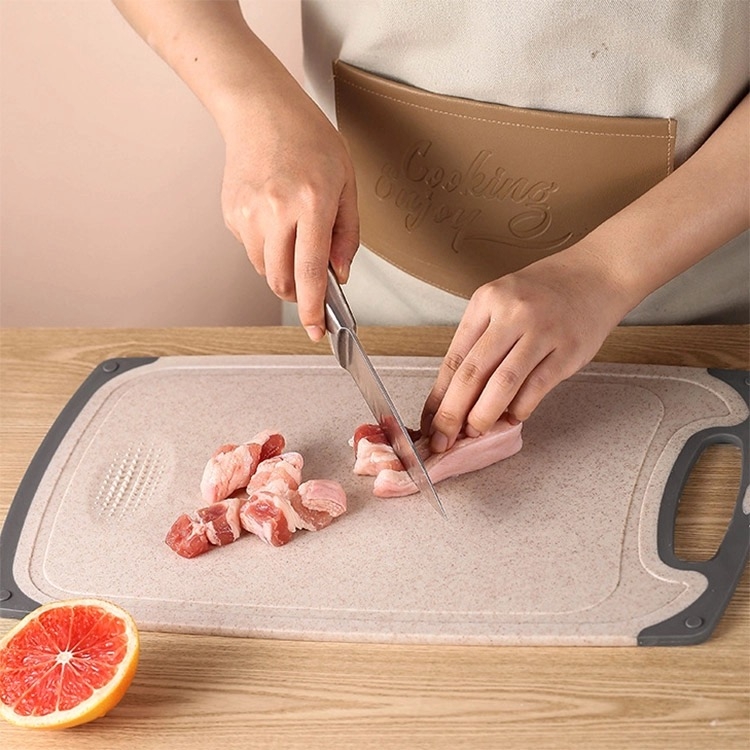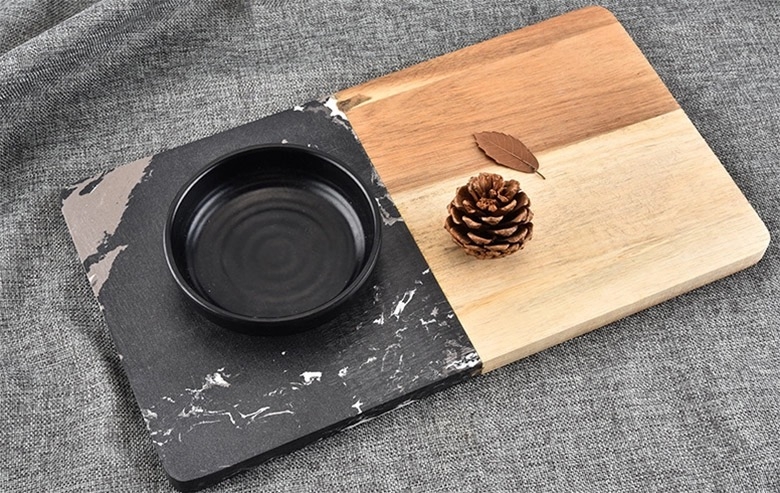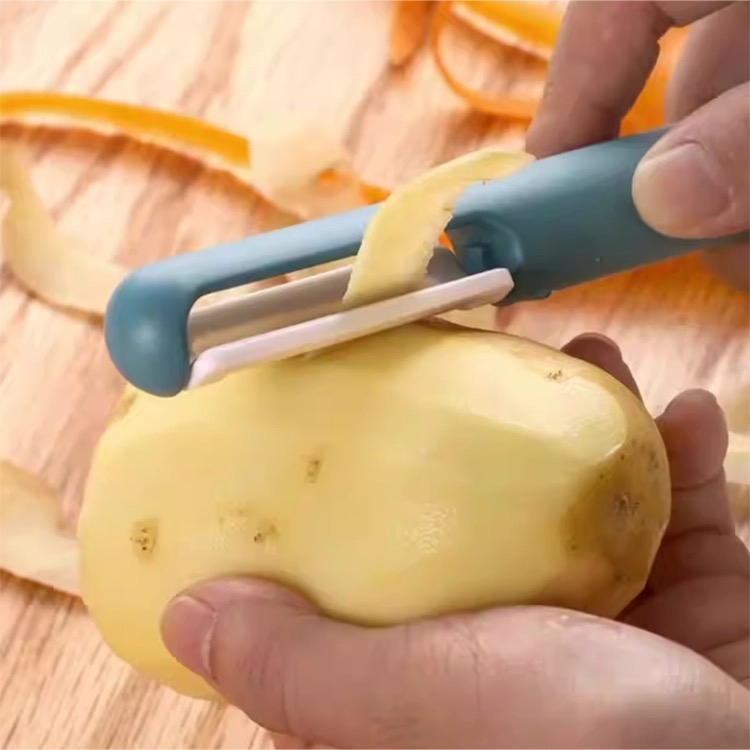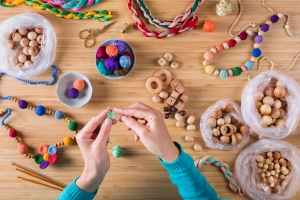When it comes to kitchen accessories, the choices can be overwhelming. From essential tools that make cooking easier to decorative items that enhance the aesthetic of your kitchen, understanding what you need can help streamline your cooking experience. This guide will explore various kitchen accessories, their purposes, and how to choose the right ones for your kitchen.
Understanding Kitchen Accessories
Kitchen accessories are tools and items that assist in food preparation, cooking, and serving. They can range from basic utensils to advanced gadgets that simplify complex cooking tasks. Knowing the different types of accessories available can help you make informed decisions about what to include in your kitchen. Understanding the purpose of each accessory can also enhance your cooking efficiency and enjoyment, allowing you to focus more on the culinary process rather than searching for the right tool.
Essential Kitchen Tools
Utensils
Utensils are the backbone of any kitchen. They include items like spatulas, spoons, and tongs, which are necessary for cooking and serving food. When selecting utensils, consider materials such as silicone, wood, or stainless steel, as each has its advantages. Silicone utensils are heat-resistant and non-stick, making them ideal for use with non-stick cookware. Wooden utensils are gentle on cookware surfaces and add a rustic charm to your kitchen, while stainless steel options are durable and easy to clean. Additionally, having a variety of sizes and shapes can help you tackle different cooking tasks, from flipping pancakes to stirring sauces.
Knives
A good set of knives is crucial for any kitchen. They should include a chef's knife, paring knife, and serrated knife. Investing in high-quality knives can enhance your cooking experience, as they allow for precise cutting and chopping. Regular maintenance, such as honing and sharpening, is essential to keep them in top condition. A well-maintained knife not only improves safety by reducing the risk of slips but also makes food preparation more efficient. Consider also investing in a knife block or magnetic strip for safe storage, which can help keep your knives organized and easily accessible.

Cooking Appliances
Small Appliances
Small kitchen appliances can significantly enhance your cooking capabilities. Items like blenders, food processors, and slow cookers can save time and effort in meal preparation. When choosing small appliances, consider their size, functionality, and ease of cleaning. Look for models that offer multiple functions to maximize their utility. For instance, a multi-cooker can serve as a pressure cooker, slow cooker, and rice cooker, making it a versatile addition to your kitchen. Additionally, consider the energy efficiency of these appliances, as this can impact your utility bills over time.
Cookware
Cookware includes pots, pans, and baking dishes. The material of your cookware can affect cooking performance. For example, stainless steel is durable and non-reactive, while cast iron retains heat well and is perfect for slow cooking. Non-stick cookware is great for easy cleanup but may require more careful handling to avoid scratching. When selecting cookware, think about the types of dishes you frequently prepare. A heavy-bottomed saucepan is ideal for sauces, while a large skillet is perfect for stir-frying. Investing in a good set of cookware can elevate your cooking and ensure even heat distribution.
Storage Solutions
Food Storage Containers
Proper food storage is essential for maintaining freshness and preventing waste. Invest in a variety of food storage containers, including glass and plastic options. Glass containers are microwave-safe and do not retain odors, while plastic containers are lightweight and often come with airtight lids. Consider containers with different sizes to accommodate various food items, from leftovers to meal prep ingredients. Additionally, labeling your containers can help you keep track of what's inside, making it easier to find what you need when you're ready to cook.
Kitchen Organizers
Keeping your kitchen organized can improve efficiency. Consider drawer organizers for utensils, spice racks for easy access to seasonings, and shelf risers to maximize vertical space in cabinets. A well-organized kitchen not only looks better but also makes cooking more enjoyable. You might also explore magnetic strips for knives or wall-mounted racks for pots and pans, which can free up counter space and keep your most-used items within reach. Investing in organizational tools can transform your kitchen into a functional workspace.
Specialty Kitchen Accessories
Baking Tools
For those who enjoy baking, having the right tools is essential. Baking sheets, muffin tins, and silicone mats can make the process easier and more enjoyable. Additionally, measuring cups and spoons are crucial for accurate ingredient measurements, ensuring your baked goods turn out perfectly every time. Consider investing in a kitchen scale for precise measurements, especially for recipes that require accuracy. Specialty tools like pastry brushes, rolling pins, and cookie cutters can also enhance your baking experience, allowing you to create a variety of treats with ease.
Grilling Accessories
If you love outdoor cooking, grilling accessories are a must. Items like grill brushes, spatulas, and meat thermometers can enhance your grilling experience. A good quality grill mat can also help prevent food from sticking and make cleanup easier. Additionally, consider investing in skewers for kebabs, grill baskets for vegetables, and marinades to elevate the flavors of your grilled dishes. Understanding the right techniques and tools for grilling can help you achieve perfectly cooked meals every time.
Specialty Gadgets
There are countless specialty gadgets available that can make cooking more fun and efficient. From avocado slicers to spiralizers, these tools can help you prepare unique dishes with ease. However, it's important to assess whether you will use these gadgets regularly before adding them to your collection. While some gadgets can be fun and innovative, others may end up collecting dust in your kitchen drawer. Focus on tools that align with your cooking style and preferences to ensure they enhance your culinary experience.

Choosing the Right Kitchen Accessories
Assessing Your Cooking Style
Before purchasing kitchen accessories, consider your cooking style. Are you a casual cook who prepares simple meals, or do you enjoy experimenting with complex recipes? Understanding your cooking habits can help you determine which accessories are essential for your kitchen. If you frequently host dinner parties, investing in serving platters and elegant utensils may be worthwhile. Conversely, if you prefer quick weeknight meals, prioritize tools that streamline your cooking process.
Quality vs. Quantity
When it comes to kitchen accessories, quality often trumps quantity. Investing in a few high-quality items can be more beneficial than having a large collection of low-quality tools. Look for accessories that are durable, easy to clean, and come with good warranties. High-quality items not only perform better but can also save you money in the long run by reducing the need for replacements. Consider reading reviews and seeking recommendations to find the best products for your kitchen.
Space Considerations
Your kitchen's size and layout will also influence your choice of accessories. In smaller kitchens, opt for multi-functional tools that can save space. For example, a food processor that can chop, slice, and puree can replace several individual tools. Additionally, consider vertical storage solutions, such as wall-mounted racks or hanging pot organizers, to maximize your available space. A well-planned kitchen layout can enhance your cooking experience and make meal preparation more enjoyable.
Maintaining Your Kitchen Accessories
Cleaning and Care
Proper maintenance of your kitchen accessories is crucial for longevity. Regularly clean utensils and cookware according to the manufacturer's instructions. For knives, use a honing steel to maintain their edge and wash them by hand to prevent damage. Additionally, consider using specific cleaning products designed for different materials, such as stainless steel cleaners or non-abrasive sponges for non-stick surfaces. Taking the time to care for your tools can ensure they remain in excellent condition for years to come.
Storage Tips
Store your kitchen accessories in a way that protects them from damage. Use drawer organizers for utensils, and keep knives in a block or magnetic strip to prevent dulling. Ensure that pots and pans are stacked carefully to avoid scratches. Consider using clear bins for small items, which can help you see what you have at a glance. Proper storage not only protects your tools but also contributes to a more organized and efficient kitchen environment.
Conclusion
Navigating the world of kitchen accessories can be daunting, but understanding the essentials can simplify the process. By assessing your cooking style, prioritizing quality, and maintaining your tools, you can create a kitchen that is both functional and enjoyable to use. Whether you are a novice cook or a seasoned chef, the right accessories can enhance your culinary experience and inspire creativity in the kitchen. Embrace the journey of cooking with the right tools at your disposal, and enjoy the delicious results that follow.

Frequently Asked Questions regarding Kitchen Accessories
1. What are the most essential kitchen accessories for beginners?
For beginners, essential kitchen accessories include a good chef's knife, cutting board, measuring cups and spoons, mixing bowls, and basic utensils like spatulas and wooden spoons. These tools cover the fundamental tasks of food preparation and cooking.
2. How do I choose the right cookware material?
The right cookware material depends on your cooking style. Stainless steel is great for browning and deglazing, non-stick is ideal for easy cleanup and low-fat cooking, and cast iron is perfect for slow cooking and high-heat searing. Consider your cooking habits and preferences when selecting cookware.
3. Are specialty kitchen gadgets worth the investment?
Specialty kitchen gadgets can be worth the investment if they align with your cooking style and you will use them regularly. For example, if you enjoy making pasta, a pasta maker can be a valuable tool. However, avoid gadgets that serve a single purpose and may end up unused.
4. How can I keep my kitchen organized?
To keep your kitchen organized, use drawer organizers for utensils, install shelves or racks for spices, and utilize clear containers for food storage. Regularly declutter and assess what you use frequently to maintain an efficient workspace.
5. What is the best way to maintain kitchen knives?
To maintain kitchen knives, regularly hone them with a honing steel to keep the edge sharp, wash them by hand with mild soap and water, and dry them immediately to prevent rust. Store them in a knife block or on a magnetic strip to protect the blades and keep them accessible.






